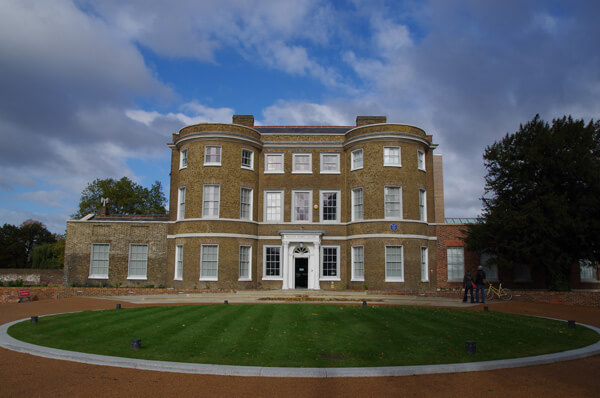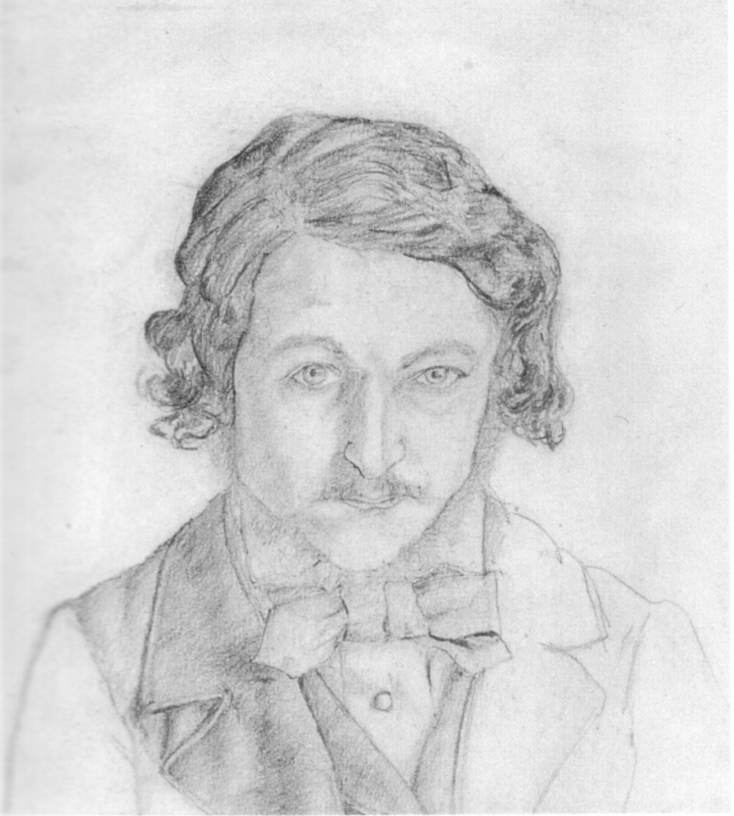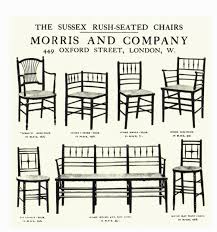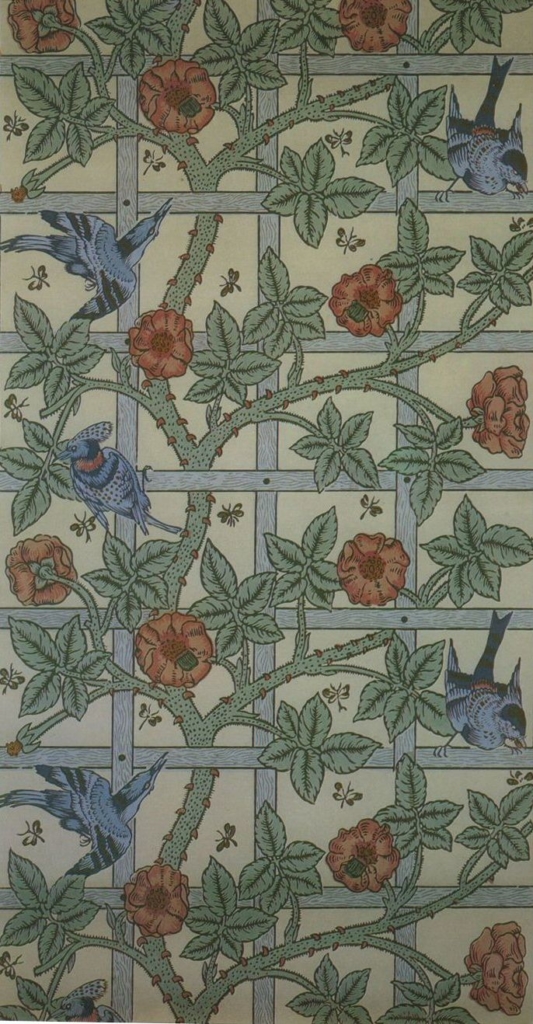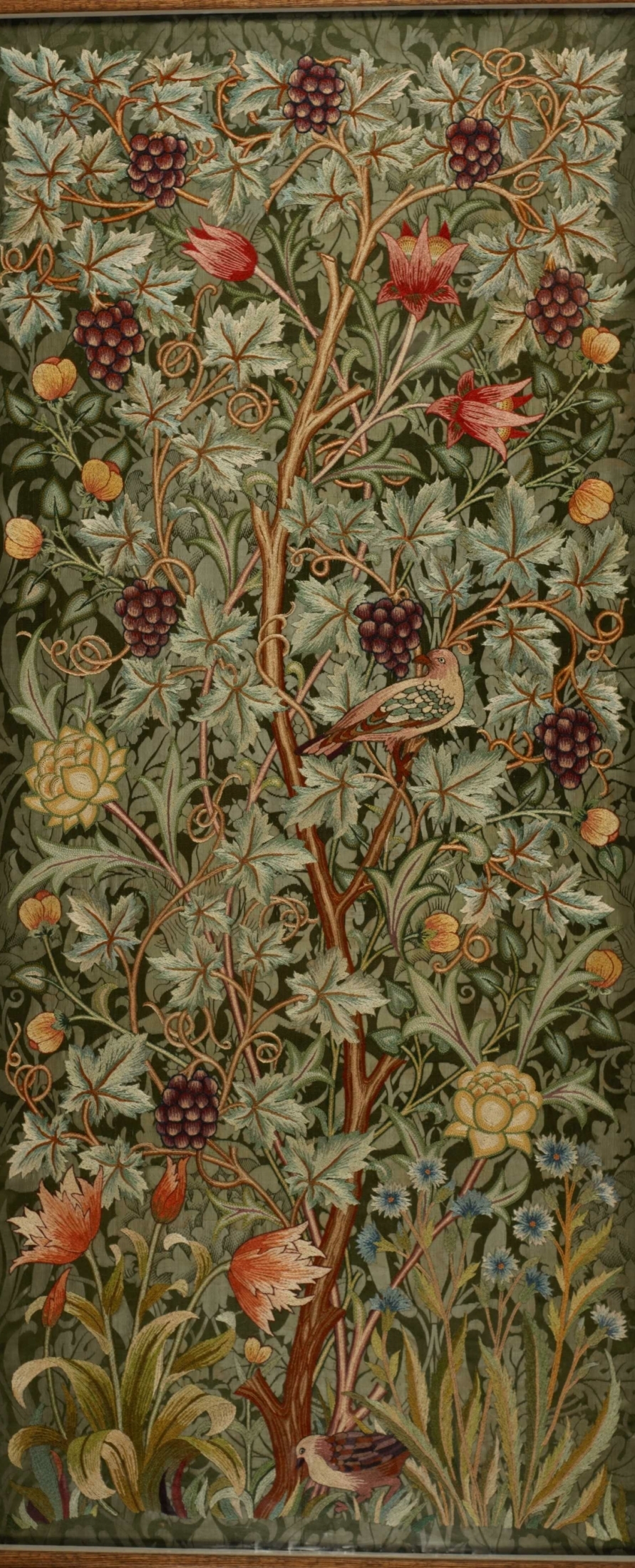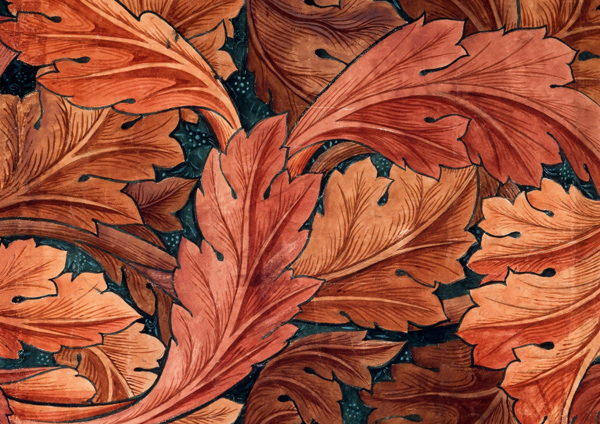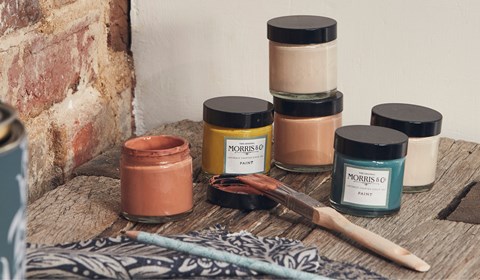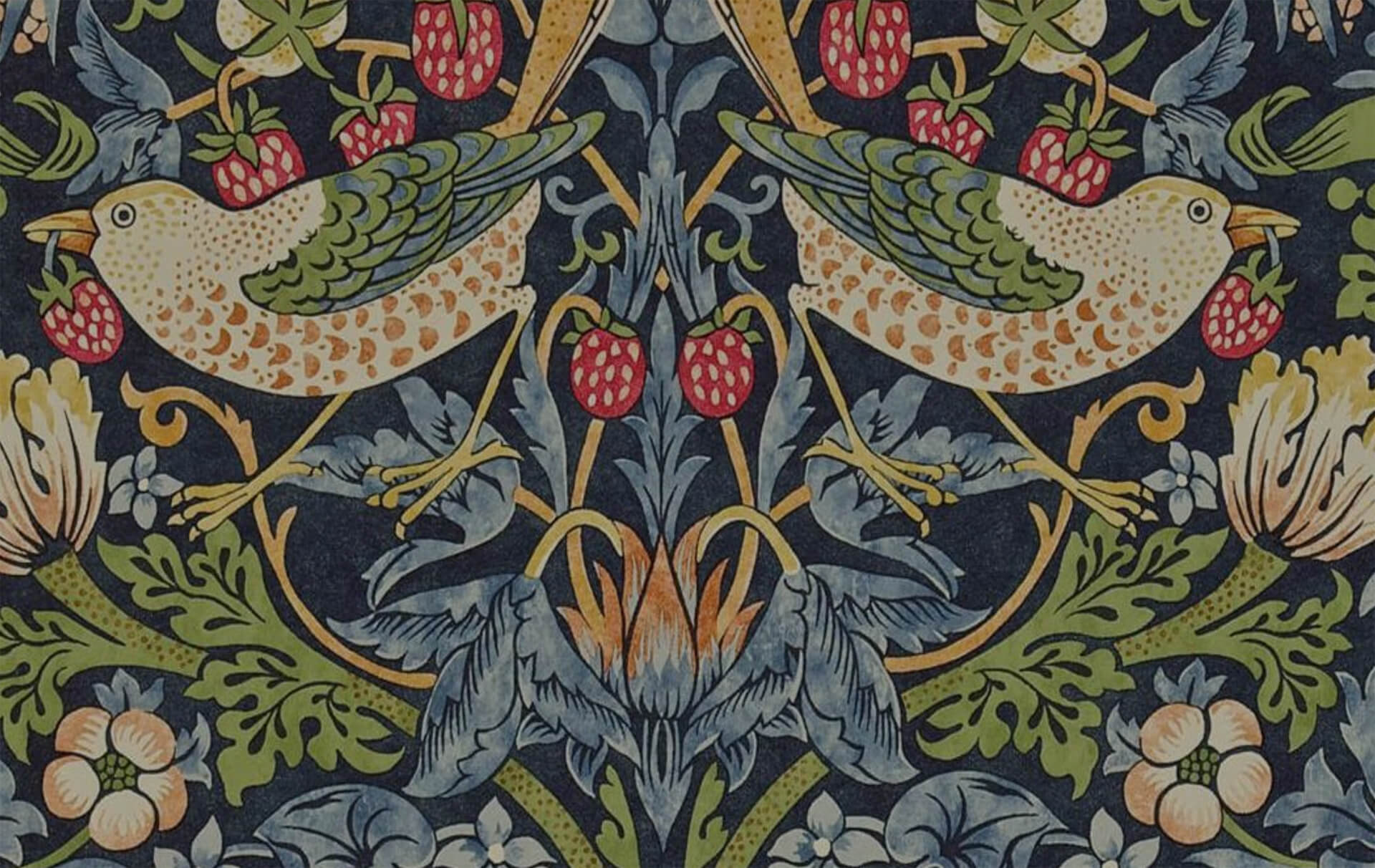William Morris Timeline
Click on the left and right arrows to move through our timeline and explore some of the key events in William Morris’s life
Jane Burden - Morris's future wife - was born in a small, three-roomed, insanitary cottage in St Helen's Passage off Holywell, Oxford.
William Morris Snr died, aged 50, at Woodford Hall (the family had moved there in 1840)
The Morris family moved to the Water House, in what is now Forest Road, Walthamstow, Essex. The Water House is now the home of the William Morris Gallery (http://wmgallery.org.uk).
Morris went to Exeter College, Oxford, to study theology. Here he made friends with Burne-Jones who also intended to pursue a career in the Church. Mackail recorded in his Notebooks that Burne-Jones told him that: `Before a week they were inseparable.' He added their `expenses [were] about £40 a term…
Read More
Morris wrote to his mother informing her he intended to become an architect. It is apparent from this letter that he had told her some weeks before that he had abandoned the idea of taking holy orders.
The first number of the Oxford and Cambridge Magazine appeared under Morris's editorship. 750 copies were printed by Bell and Daldy of Fleet Street and sold for 1s. They were sent out in green printed wrappers with the contents printed in double columns. The magazine proved so successful that a…
Read More
A self-portrait in pencil by Morris bears the date `29th July'.. The year of composition is conjectural. A second self-portrait also probably dates from around this time. Both portraits are now at the V & A.
Morris and Burne-Jones moved to three unfurnished rooms on the first floor of 17 Red Lion Square. Morris occupied the small room at the rear of the building. Rossetti and Deverell had occupied the same rooms in the days of the Pre-Raphaelite Brotherhood. Morris and Burne-Jones later designed - and…
Read More
Encouraged by Rossetti, Morris left Street's office and abandoned his career in architecture. Mackail, in his Notebooks, recalled Burne-Jones saying that Morris `began painting directly on leaving Street'.
Morris, Rossetti and Burne-Jones took rooms at 87 High Street, opposite Queen's College, Oxford. In late June/early July Morris went with Rossetti to see Benjamin Woodward in Oxford. Woodward had been chosen to design the University Museum and the Union Debating Hall. Rossetti offered to decorate the apsed upper walls…
Read More
Morris was introduced to Jane Burden, probably at the theatre
Morris submitted his first volume of poetry - The Defence of Guenevere & Other Poems - to the publisher, Alexander Macmillan.
Morris married Jane Burden at St Michael's Church, Ship Street, Oxford. The wedding was conducted by Morris's friend R W Dixon with Faulkner as the best man. The bride was given away by her father. According to the account that Burne-Jones gave Mackail `M. said to Dixon beforehand"Mind you don't…
Read More
Morris and Jane moved to the Red House, overlooking the Cray Valley near Bexley Heath, Kent. The house was situated three miles from Abbey Wood Station and only ten miles from the centre of London. The weather vane on the tower has the inscription `W.M. 1859'. The house cost Morris…
Read More
Jane Alice (`Jenny') Morris was born at the Red House. Morris named her Alice after his younger sister. She was - at a later date - christened at Bexley Church in Kent. A celebration dinner was held after the christening at the Red House which was attended by amongst others…
Read More
Morris, Marshall, Faulkner & Co. opened for business. The partners - Morris, Burne-Jones, Webb, Faulkner, Hughes (who withdrew soon after), Rossetti, Madox Brown and Marshall - each put up £1 as collateral. The main capital of £100 was loaned by Morris's mother, Emma. The Firm's prospectus was also issued. In…
Read More
The Trellis and Daisy wallpaper designs were registered. These were the first wallpapers produced by Morris. They were expensive to make as they each required twelve blocks (one for each colour used). Jeffery & Co, of Islington, were employed to print these wallpapers. http://www.vam.ac.uk/content/videos/b/video-block-printed-wallpaper/
The Kelmscott Press completed the Complete Works of Geoffrey Chaucer. It took four years to make - Morris met with Burne-Jones to discuss the designs for the Chaucer on 16 July 1892. By 8 August 1894 Sydney Cockerell recorded that the first page of the Chaucer was printed and then,…
Read More
“I determined to do no less than to transform the world with beauty.”


